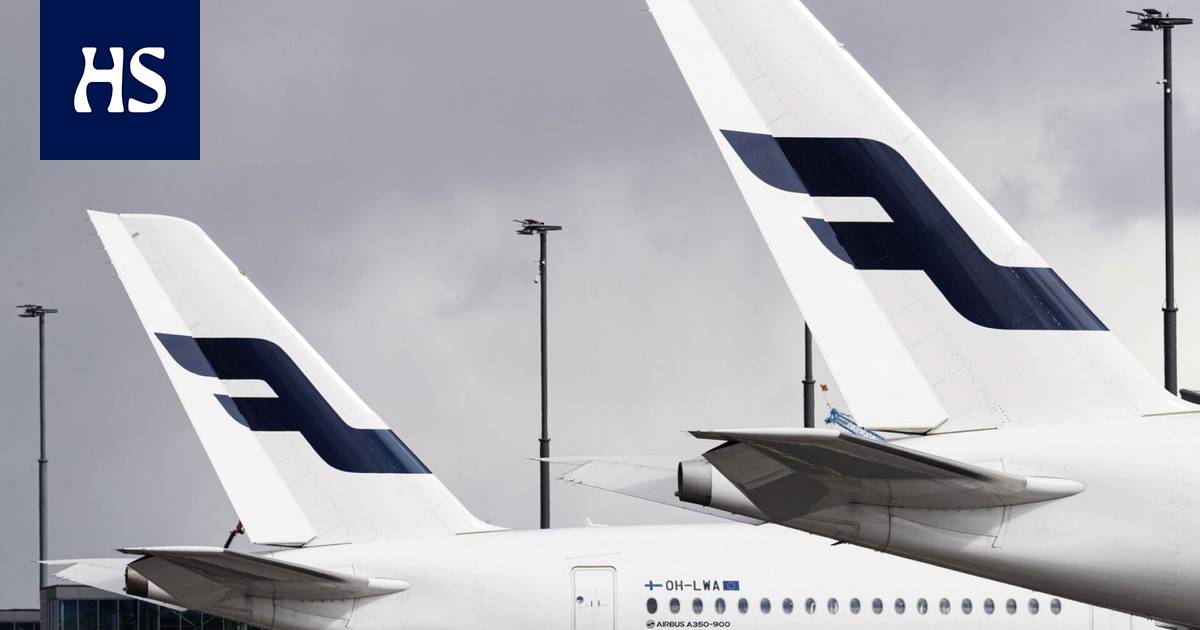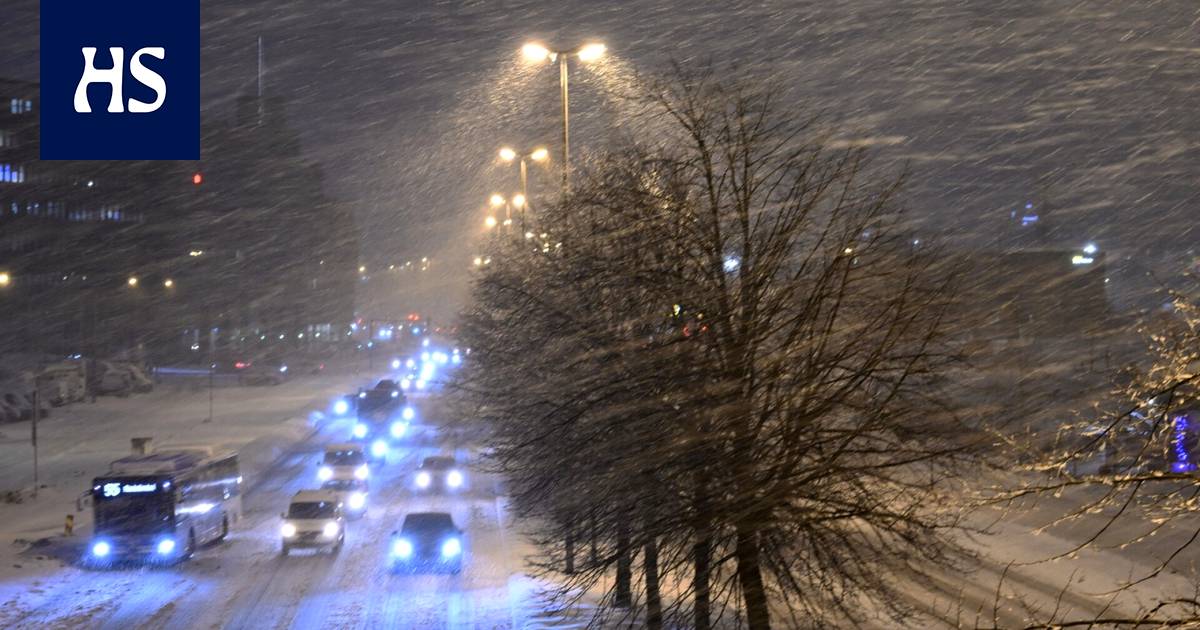“Rising costs increase the pressure to raise air ticket prices,” says Finnair's director of sustainability. The airline still does not criticize the tightening of emissions trading.
Carrier Finnair admits that tightening climate measures will increase the prices of plane tickets.
“Like the CEO Topi Mannerkin has said, the time of cheap plane tickets is over”, says Finnair's responsibility director Eveliina Huurre.
“Rising costs increase the pressure to raise the prices of airline tickets.”
Led by Elisa, starting at the beginning of March at the latest Manner said in an interview with HS in Augustthat reducing the carbon dioxide emissions of flying requires a lot of money and investments.
“Ultimately, those costs are transferred to the price of the plane ticket,” Manner said.
The EU is ending distribution of free emission rights to air traffic almost entirely in 2026, but their reduction already started at the beginning of this year.
In the government's recent presentation of the Emissions Trading Act, it was estimated that Finnair's emissions trading expenses in 2026 will be around 100 million euros, while they were around 38 million euros last year.
The EU regulation on sustainable aviation fuels also increases costs. It obliges large airports to distribute a certain proportion of sustainable fuel, which can mean, for example, certified biofuels.
Huurre says that today Finnair monitors the development of biofuel production “daily”.
“We hope that the production of sustainable aviation fuels would increase significantly, but so far there is no such thing in sight.”
Limited supply is thus keeping prices high. Today, according to Huurte, sustainable aviation fuel is three to five times more expensive than fossil kerosene.
It is also known that from 2026 onwards, Finnair's emissions trading costs will probably increase from that estimated one hundred million euros. The number of emission rights decreases every year, and at the end of 2026, the EU's emissions trading may expand to cover all flights departing from the EU's economic zone.
Finnair's turnover in 2022 was 2.4 billion euros. Is one hundred million euros a lot of money for Finnair?
“Yes it is. That's a lot,” Huurre replies. “However, air transport is a business with small margins.”
Certainly not the EU in a pinch, take climate action regarding flying. They are part of the EU's extensive 55 preparedness package, with which the Union aims to reduce its emissions by 55 percent by 2030.
In English, the name of the package is catchy Fit for 55. Its goal is that the world's largest single market area would do its part in implementing the Paris climate agreement and keeping global warming in check.
The countries of the world noted Dubai in the final conclusions of the climate conference in December unanimously that “the effects of human-caused climate change are already being felt in all regions of the earth and that the people who caused climate change the least are the most vulnerable to its effects”.
It was also stated in the text that every degree increase in warming increases those negative effects. So even not taking action has a price.
Over here until now, policy choices in Europe have favored flying compared to other forms of movement. Jet kerosene is exempt from fuel tax, and international flights are VAT-free.
In 2022, European countries lost 34.2 billion euros due to tax breaks for air travel, estimates the environmental organization Transport & Environment in its recent publication in the report.
“
“Where the prices will be will become clear in a few years.”
Responsibility director Huurre says that Finnair does not want to position itself as an opponent of the EU's climate measures.
“We have had a lot of dialogue at the EU level and nationally, and we participate in the production of information. But if you're asking if we have a critical stance, we don't. Everyone has to bear environmental responsibility”, says Huurre.
According to Huurte, we are now living in “interesting times” in the industry. It is impossible to make accurate predictions about the prices of plane tickets, even though the upward pressure is clear. In the coming years, ticket prices will be affected by the demand and supply of flights, the future production of sustainable fuels and regulatory changes.
“What the prices will be will become clear in a few years. These are interesting years,” says Huurre.
In the aviation industry also has its international climate goals. They have been agreed within the framework of ICAO, the International Civil Aviation Organization under the UN.
However, according to Huurte, those so-called Corsia targets are quite lax compared to EU regulation.
The Corsia targets require that airlines compensate for emissions growth exceeding the reference level by purchasing climate units that strengthen carbon sinks. Today, the benchmark is 85 percent of 2019 emissions.
“From Finnair's point of view, its impact will be small in the next few years,” says Huurre.
Next year's Corsia costs are estimated to be around one million euros.
#Environment #time #cheap #flights #Finnair









